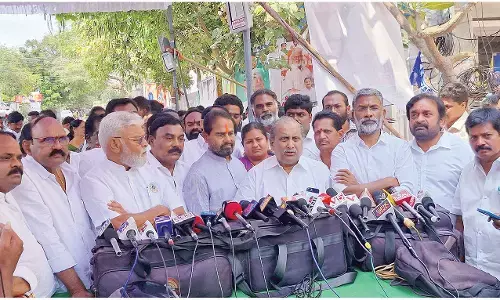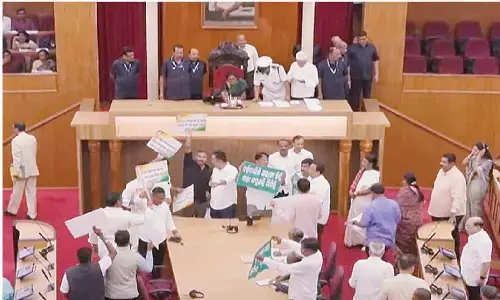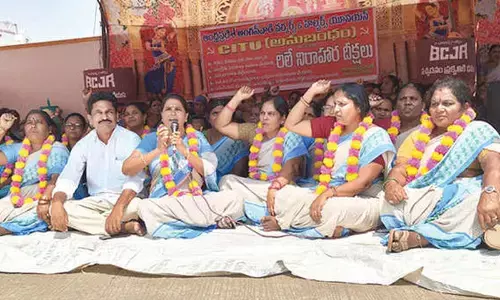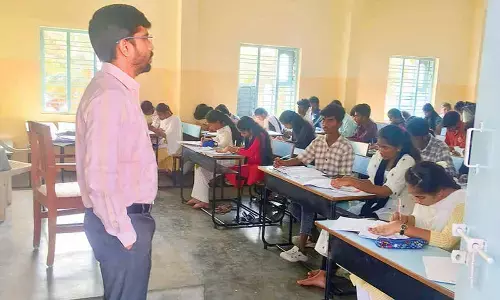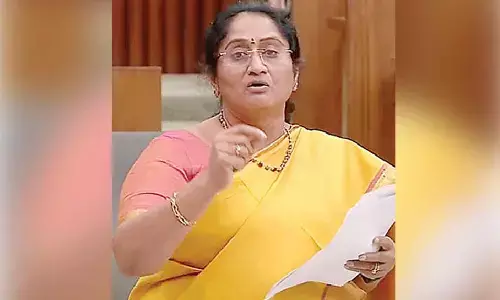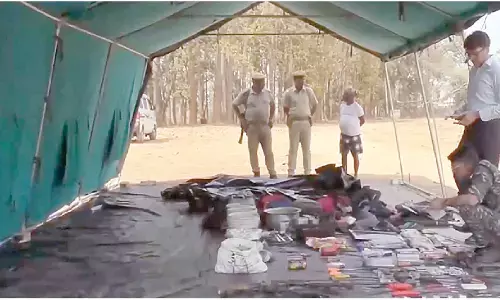Lessons nation should learn from Rajasthan crisis
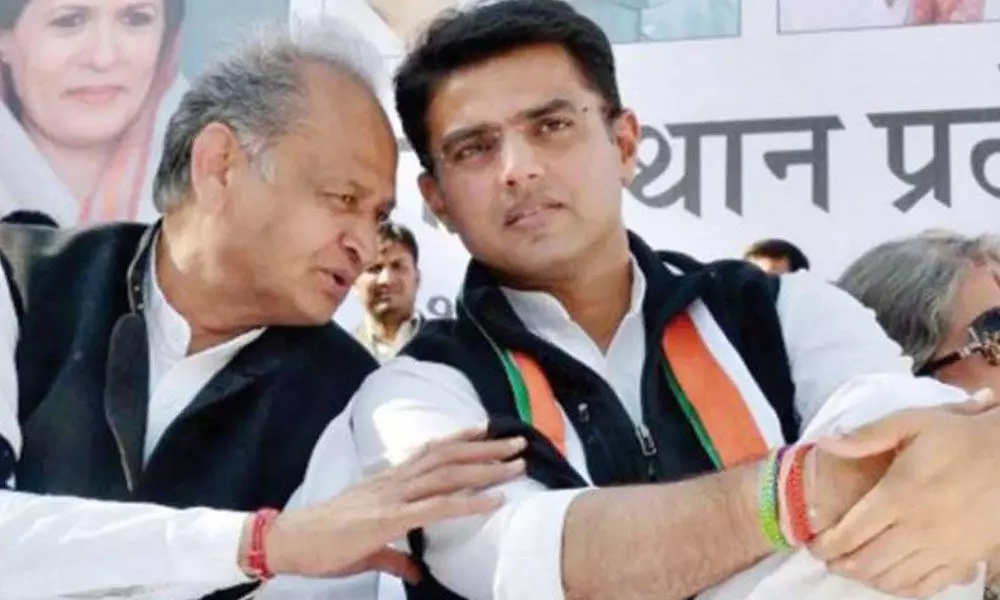
Lessons nation should learn from Rajasthan crisis
The political crisis in Rajasthan may have blown over with the truce worked out between the rebels and the Congress, but the lessons this crisis taught us must not be forgotten
The political crisis in Rajasthan may have blown over with the truce worked out between the rebels and the Congress, but the lessons this crisis taught us must not be forgotten. If we refuse to learn from our mistakes, we tend to repeat them. In our country, we have the habit of following negative examples far more spontaneously than positive examples and that is one of the reasons for the decline of values in our public life.
Whenever a government, be it at the Centre or in the States, faces a question of its majority, it is incumbent upon the President or the Governor concerned to direct the head of the government to prove the majority on the floor of the House. This is a well-established constitutional custom in our system. Therefore, when the Rajasthan government appeared to be facing questions about its majority, the Governor should have asked the Chief Minister to prove his majority in the Assembly. That is what the Constitution says and that is also what anyone with common sense would expect to happen. For this to happen, the Assembly needs to be convened by the Governor as the House was prorogued following the conclusion of the last session as is the practice. But what happened in Rajasthan is just the contrary! Instead of asking the Chief Minister to face a floor test, the Governor refused to convene the Assembly, despite a specific request made by the State Cabinet to that effect. It is a classic example of the fence eating the crop. The Governor who is supposed to uphold the Constitution sought to derail it in Rajasthan! How else can we explain the reluctance of the Governor to convene the Assembly?
It must be noted here that the Constitution gives wider powers to the Governor than to the President. Article 74 says thus: there shall be a Council of Ministers with the Prime Minister at the head to aid and advise the President who shall, in the exercise of his functions, act in accordance with such advice. The corresponding provision for States, Article 163 says thus: There shall be a Council of States with the Chief Minister at the head to aid and advise the Governor in the exercise of his functions, except in so far as he is by or under this Constitution required to exercise his functions or any of them in his discretion! Compare these two parallel provisions: the President who is an elected entity and for whose removal there is a specific procedure in the Constitution has to go by the advice of the Cabinet, while the Governor, not an elected entity and to remove whom there is no procedure at all, is provided with much discretion vis a vis the Cabinet.
The original Constitution did not say that the President 'shall act in accordance with such advice' in Article 74. These words were inserted by the 42 Amendment. But the Governor's position is what was written in the original Constitution. We cannot imagine governance in our States without a Governor because it would lead to a no holds barred situation, given the propensity of Chief Ministers to act according the political expediency than on principles of governance! Governors are vested with these powers to uphold the Constitution and to ensure constitutional governance and to curtail centrifugal tendencies on the part of the States. The identity of the States was, and is, very strong, the notion of nation being in its rudimentary stage at the time of independence. We cannot imagine States without Governors. But, the framers of the Constitution may never have imagined that these wider powers and discretion would be used by the Governors to derail the constitutional process in the States. Alas, that is where we have reached since 1950!
In our polity, it is a settled convention that the elected body, be it Parliament or the State Legislature, would be convened at the instance of the government. Though the Constitution ordains that the gap between two sessions should not be more than six months, we have three sessions of our legislative bodies in a year known as the Budget session, Monsoon session and the Winter session. This is followed by the Union and the States uniformly. In between, there are occasions when a sitting of the House is convened if the situation demanded. The President and the Governors would summon the Houses to meet in a session, but they have no discretion in this matter. They are expected to respect the decision of the Cabinet. But that did not happen in Rajasthan! Instead of summoning the Assembly and asking the Chief Minister to prove his majority on the floor of the House, the Governor of Rajasthan refused to go by the Cabinet decision, thereby provoking the Legislators to sit on dharna on the lawns of the Raj Bhawan! While the legislators begged the Governor to convene the Assembly, the Governor begged to differ! This is an ironical situation. There are any number of examples when a sitting was convened just to have a floor test to verify the majority. Even otherwise, it is the prerogative of the Government to call for a session of the Legislature the role of the Governor is to sign the summons and allow the Assembly to meet and carry on the business of the government. Summoning the Assembly is a routine constitutional function of the Governor and by refusing to do that, a confrontational situation was created by the Governor. This is fraught with dangerous possibilities for the relations between a Governor and his government. This shows how in our country constitutional institutions function based on political expediency than constitutional principles of governance. Another Governor can take a clue from this episode and cite this as a precedent to play politics.
Why do Governors act as stooges of the Centre than as constitutional dignitaries supposed to uphold the Constitution in the States? In most of the cases, active politicians belonging to the ruling party at the Centre are appointed as Governors. The Constitution does not provide any specific procedure for their appointment nor a method for their removal. While a Governor has a term of five years, this is subject to the pleasure of the President. Article 156 (1) says that the Governor shall hold office during the pleasure of the President, while 156 (3) says that 'subject to the foregoing provisions of this Article, a Governor shall hold office for a term of five years. The President's pleasure precedes the term of five years. When there is no procedure for appointment except a Presidential order and no procedure for removal except the President losing his pleasure, how do we expect the Governors to function independent of political compulsions?
The debate regarding the role of the Governor is not new. Several Chief Ministers, including NTR, have demanded the abolition of the institution of the Governor. We cannot visualise States in India without a Governor. There is a need for an authority above the elected government for a balanced functioning of the polity based on constitutional principles. Therefore, abolishing the office of Governor is like throwing away the baby with the bath water. That is not the solution. The appointment should be based on the consent of the State government concerned and there should be security of tenure. Then, it is possible for Governors to act conscientiously than based on convenience. This calls for a reform of the institution than its removal from the Constitution. Another institution that has come under considerable political strain is the office of Speaker, be it the Lok Sabha or the Assembly. That needs to be dealt with separately as it is a different subject.
(The writer is Assistant Professor, Dr BR Ambedkar Law College, Hyderabad. Views expressed are personal)


